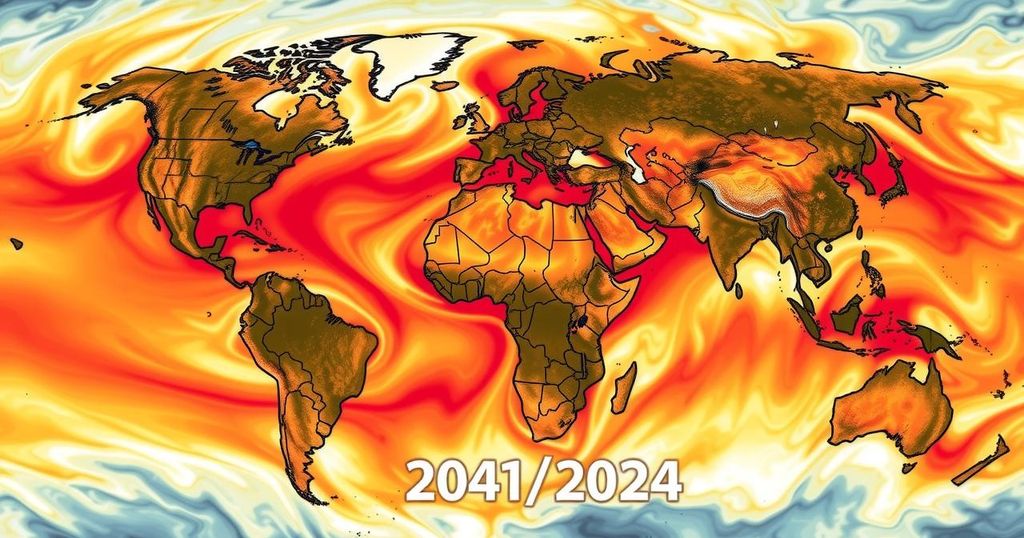Record Temperatures Indicate 2024 May Become Hottest Year Ever Recorded
The report by Copernicus indicates that November 2024 was the second-warmest November on record, suggesting that 2024 could be the hottest year ever. The average global temperature for November was 14.10 degrees Celsius, slightly higher than the previous year. The urgency for robust climate action is emphasized as scientists warn of significant ecological and agricultural impacts stemming from the ongoing warming trend.
According to a report from the European climate service Copernicus, Earth experienced its second-warmest November on record, following a notably warm November in 2023. This extreme warmth paves the way for 2024 to potentially become the hottest year ever recorded. The global average temperature in November was 14.10 degrees Celsius (57.38 degrees Fahrenheit), slightly warmer than the previous year.
The remarkable heat this year is a continuation of a trend, previously ignited by human-induced climate changes and the El Niño phenomenon, which has since ended. November’s temperatures were 0.14 degrees Celsius (0.25 degrees Fahrenheit) higher than those recorded in 2023. Jennifer Francis, a climate scientist, emphasized that this significant increase reflects a concerning departure from average November temperatures.
Furthermore, the report indicates that 2024 may likely be the first calendar year when average temperatures surpass the 1.5 degrees Celsius (2.7 degrees Fahrenheit) threshold set by the Paris Agreement. Samantha Burgess, the Deputy Director of Copernicus, clarified that while the agreement itself is not breached, the urgency for ambitious climate actions has never been clearer.
Increasing temperatures disrupt ecosystems and threaten agricultural viability due to declining pollinator populations and rising pest numbers. Jonathan Overpeck, a climate scientist, noted that the current trends present a troubling escalation of global warming that requires immediate attention.
The article discusses the notable warming trend observed globally, particularly the data collected regarding November temperatures, signaling a possible record as 2024 could be declared the hottest year on record. It emphasizes the implications of climate change and statistical evidence supporting these findings while referencing authoritative climate scientists and organizations, specifically the Copernicus Climate Change Service. The context also includes discussions on the impact of El Niño and La Niña on global temperatures, highlighting the urgent need for climate action in line with the Paris Agreement.
In conclusion, the recent climate data indicates alarming trends that forecast 2024 as potentially the hottest year in recorded history, driven by unprecedented warm temperatures in November and significant human-induced factors. While global responses to climate change remain imperative, the novelty of the warming rate presents profound challenges to both ecosystems and human societies. Urgent action is necessary to address these changes and comply with established environmental goals.
Original Source: apnews.com




Post Comment